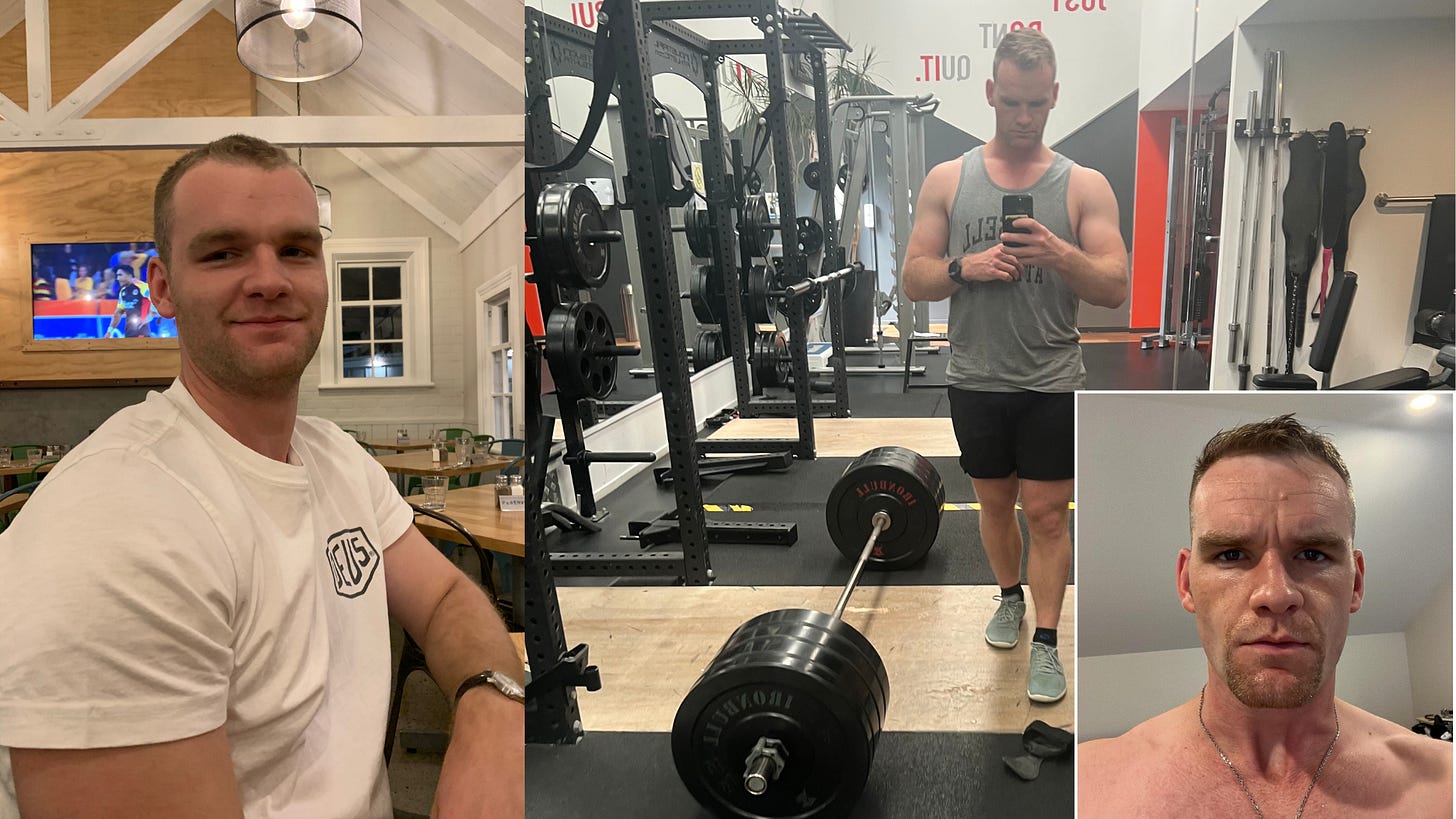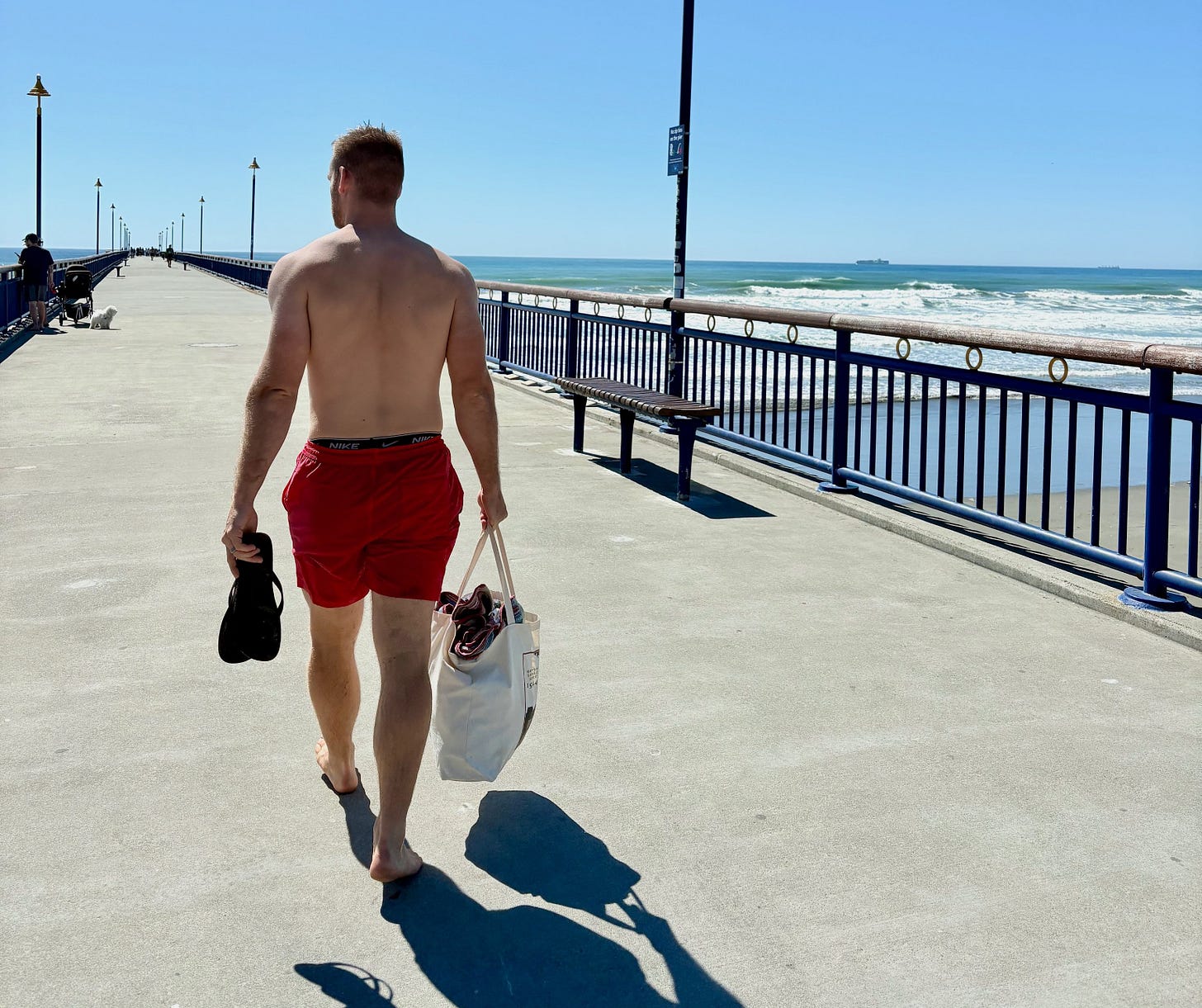I used to think I was a “high energy” person. It wasn’t until I made an intentional effort (about a year ago) to really dial things in that I realized what high energy actually meant.
I’m almost 30. I have all-day energy. I rarely crash in the afternoon. And I often feel like I need to do something active to burn off the excess. In other words: I feel like I’m 18 again.
This is without:
Any exogenous hormones. I’m not on TRT or any other PEDs.
Abusing stimulants. I drink 2-3 coffees before noon. That’s it. I don’t feel like I need them either, and often will drink one coffee early in the morning and then coast through the rest of the day without craving another.
Expensive biohacks, or whatever BS Dave Asprey is trying to sell now.
I don’t want to be hyperbolic. I still have low energy days. But the energy (and motivation) difference between 2025 Sam and 2023 Sam is significant.
Here’s what I’ll cover in this post:
My background/health journey (for context)
Nutrition & supplementation
Dialling in circadian health
Exercise
Lifestyle & environment
Note: I also plan to update this in ~6 months. I’m expecting my first child to arrive in July, and obviously my energy is going to take a hit—but I’m super curious to see how I can adapt.
My background
I’ve always been interested in health and personal development.
It started when I was 17. My friend built a home gym, and as a skinny teen I leapt at the opportunity to not be skinny. Like every 17yo guy, I wanted to lift weights to get girls.
The getting girls part didn’t work properly, but I became obsessed with nutrition and lifting. I’d go on the bodybuilding.com forum (RIP) and read for hours on end about optimal protein intake, lifting routines, how to bulk up, and the many timeless threads in bb misc.
From 17 to 18, I went from a skinny 65kg (143lb) to 80kg (176lb), mostly muscle. Felt incredible.
From 18-22, I slowly gained more muscle (and a little fat). I lifted consistently, got into running, and ate reasonably healthy. Sat around 90kg at this point.
From 22-26, I did the same, although I let myself go and reached 100kg in my mid 20s. Too heavy for me. Ironically, this was also a period where I felt extremely complacent, low mental energy, and a little depressed. Despite my interest in health, exercise, nutrition, I wasn’t healthy.
From 26 → 29 (current), I dropped weight, dove deeper into nutrition/health/energy optimization, and radically transformed how I feel on a day-to-day basis.
Nutrition & supplementation
The biggest thing that I changed was my nutrition. While I’ve never eaten poorly, my threshold for what I considered poor nutrition was pretty high. I knew fast food was bad, I didn’t know how bad. I knew seed oils were bad, I didn’t know how bad.
I’d gone through the standard “bodybuilder” approach to cutting weight. I ate chicken, broccoli and rice every day. I lost weight but felt low energy and figured it was simply because I was in a caloric deficit.
I’d experimented with low carb approaches, including the carnivore diet for a short period of time.
But it wasn’t until I came across Ray Peat and the bioenergetics/pro-metabolic space that it finally “clicked.”
Getting “Peat-pilled” (The Pro-Metabolic Shift)
Peat’s philosophy can’t be reduced to a few paragraphs. It’s not a “reductive” approach. But there are a few key principles:
Keep your metabolic rate high: Eat foods that promote metabolic function and increase basal metabolic rate, avoid those that inhibit it. “Keeping the metabolic rate up is the main thing, and there are lots of ways to do it.” - Raymond Peat, PhD.
Avoid PUFAs/seed oils. These are highly toxic. They are anti-metabolic and lead to a host of issues.
Sugars over starches. This was the hardest for me to "get.”
Increase gelatin/collagen intake significantly.
I voraciously read his articles, consumed content from other creators, and tried to understand this as best I could. I was a paradigm shift for me. And it worked.
Two years ago, I was basically on an intermittent fasting, high protein diet:
Wake until noon: black coffee.
Lunch: protein (usually chicken or beef), with rice and veggies.
Dinner: similar to lunch, or whatever the wife cooked.
Today, a day of eating is more like:
Morning till noon:
Coffee w/ sugar
1-2 glasses of orange juice
As much fruit as I feel like eating. Will often make a smoothie with blueberries & coconut water.
Mostly, I’m just eating carbs. I’ll throw some salt/electrolytes in there too.
Lunch:
Protein with some carbs, not too much fat. This is my preworkout meal.
Dinner:
More protein, a bit more fat, less carbs.
The difference is palpable. I’m consuming more calories than I used to without gaining weight (~2500-3000 a day compared to ~2000-2500). I have twice as much energy. I feel younger and more playful.
Nutrition Resources:
Dialling in supplementation
I’ve experimented with supplements for the last decade with varying results. I used to be of the opinion that you should “dial everything else in” first before worrying about them.
I no longer believe that, for a few reasons:
Because a mineral or vitamin deficiency can be a major bottleneck in one’s life (e.g., if you’re B1 deficient, it can be hard to replenish through food only, and until you supplement then bad things will continue to happen).
Because a supplement can be something that encourages you to dial everything else in. If supplement X gives you a significant boost in motivation and drive, then you’re more likely to train or get outside and be active.
There are some supplements I believe practically everyone should take regardless of where they’re at.
My current stack is minimal. Here’s what I take almost every day:
Creatine: 5-15g per day. I’ll take more on days where I’ve slept poorly as there’s evidence to suggest it improves cognitive performance in sleep deprived individuals.
Taurine: 1-3g per day. Host of benefits.
Thorne Basic B-Complex. I’m pretty sure I was deficient in some sort of B vitamin, because I noticed a significant increase in energy once I started taking this.
Thorne Trace Minerals.
And then, strategic stacks for certain situations:
Sleep Stack (if I feel like I’m not going to fall asleep quickly or I really need to prioritize a good sleep that night):
200-400mg of L-Theanine
1g Taurine
3g Glycine
Focus Stack
200mg L-Theanine
Caffeine
1g Taurine
Gingko Biloba
Circadian Health & Sleep
Taking circadian health seriously has had a drastic impact on my energy levels.
I’ve never been a bad sleeper, but for years I’ve had issues with sleep latency/getting to sleep. I’d lie there ruminating for 30-60 mins, sometimes longer, at least a few times per week.
Today, this happens maybe once every few weeks. Most of the time, once I’m in bed, I’m asleep within 15 mins.
Here’s what’s worked for me:
Getting light in the AM. I don’t do this every day, admittedly. But I should. Usually once the sun’s up I’ll walk to the cafe nearby to do some work.
Getting more sunlight during the day. If I have an opportunity to get outside, I’ll do so. During spring/summer, I’ll lie in the sun midday to get vitamin D.
Limiting screen use in evening + using Night Shift & Iris. I avoid as much bluelight as I can past 7pm. If I really have to be on my laptop, and don’t need color, I’ll use Iris and make the screen red.
Blue-light blockers. They work. But you need to get the ones that actually block blue light. Here’s a website with a bunch of data/tests on different brands.
Red light in bedroom. I bought an anti-flicker, fully red LED light that I put on in the bedroom. It works great.
Manta sleep mask. Game-changer.
Further Resources
Exercise
I’ve always been training in some form or another. Mostly lifting. Running here and there.
Over the last year I decided I wanted to exercise strictly for performance and energy maximization. I’m not trying to win any bodybuilding comps, I’m certainly not going to win any marathons. So I wanted to figure out what worked best for me, with the guiding metric being “how do I feel on a day-to-day basis when I train this way during the week?”
Here’s what worked:
2-3 lifting sessions per week, less volume and higher intensity. No longer do I spent an hour lifting in the gym. Most of my workouts are 25-45 mins. I make each set count.
More zone 2 cardio. There’s a direct correlation between cardio minutes and energy levels. It’s potent for me. I aim for 150 mins per week (rarely hit it, but that’s the aim).
1-2x high intensity cardio sessions per week. Usually a Norwegian 4x4 session on the bike.
I also train BJJ, 2-3x per week. This probably takes me past “optimal” training load, and I’ll notice energy decrease the next day after an intense rolling session. But energy is there to be USED, and I like BJJ, so I’m happy with that tradeoff.
This is a dynamic routine. On weeks where I do a big hunt/hike, for instance, I’ll pull back on some of the cardio and BJJ. Basically, I listen to what my body is telling me. If I feel fatigued then I either take a rest day or train at much lower intensity.
Lifestyle & Environment
A few other things that have helped:
Sauna 2-3x per week. I wasn’t doing this while trying for a kid, but now that that’s out of the way, I’m back into it. It has a drastic positive impact on my sleep quality. Usually I’ll go after my lifting sessions.
Desk walking pad. I prioritize walking outside but there are times where I’m going to do easy/boring work and if I can get an extra 3-5k steps, great.
Goals & projects that excite me. Energy is as much mental as it is physical. Having a reason to maximize your energy is important.
Getting outside as much as I can.
That’s basically it. I plan to continue experimenting and improving. Will update this with my learnings.





